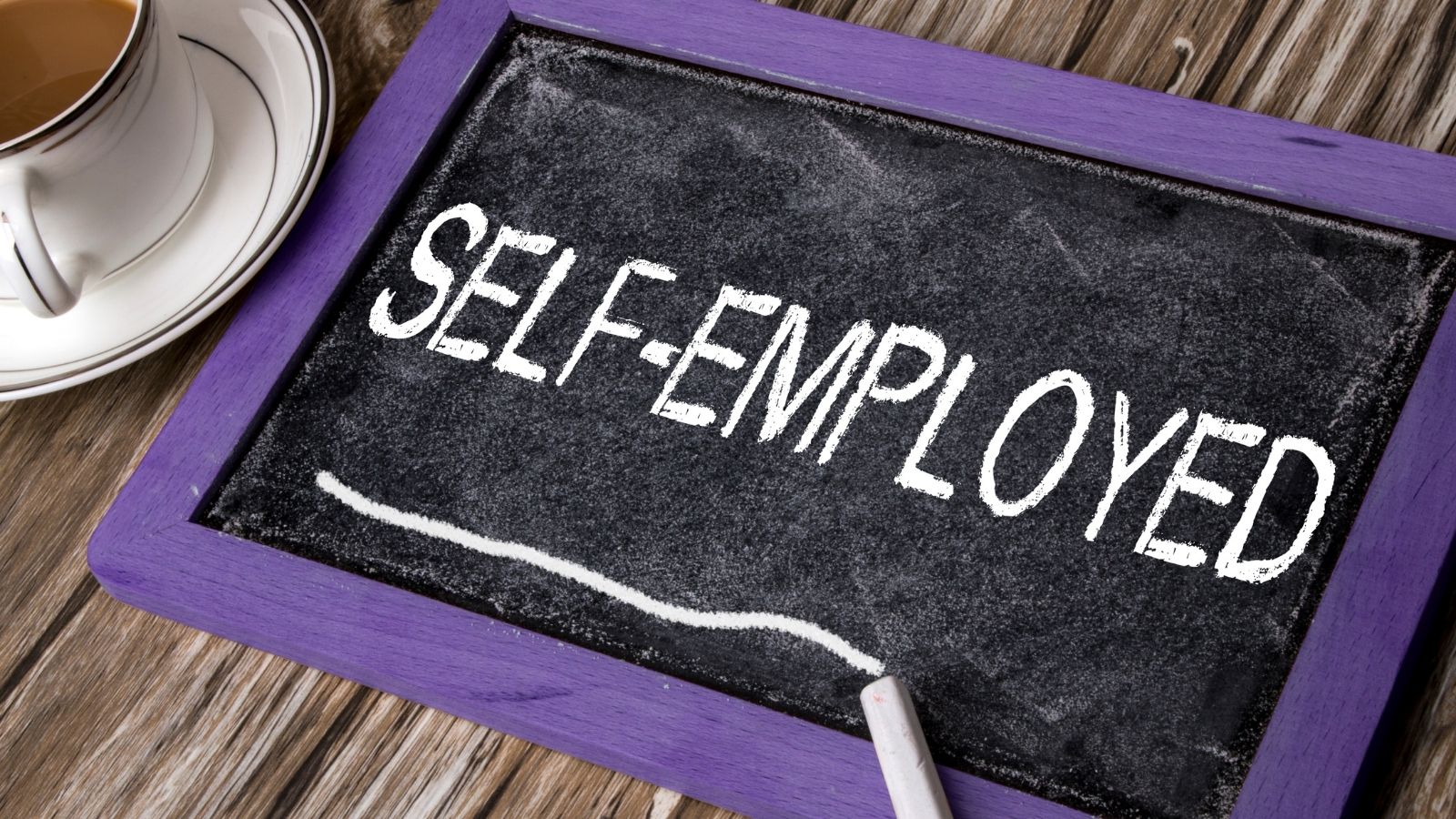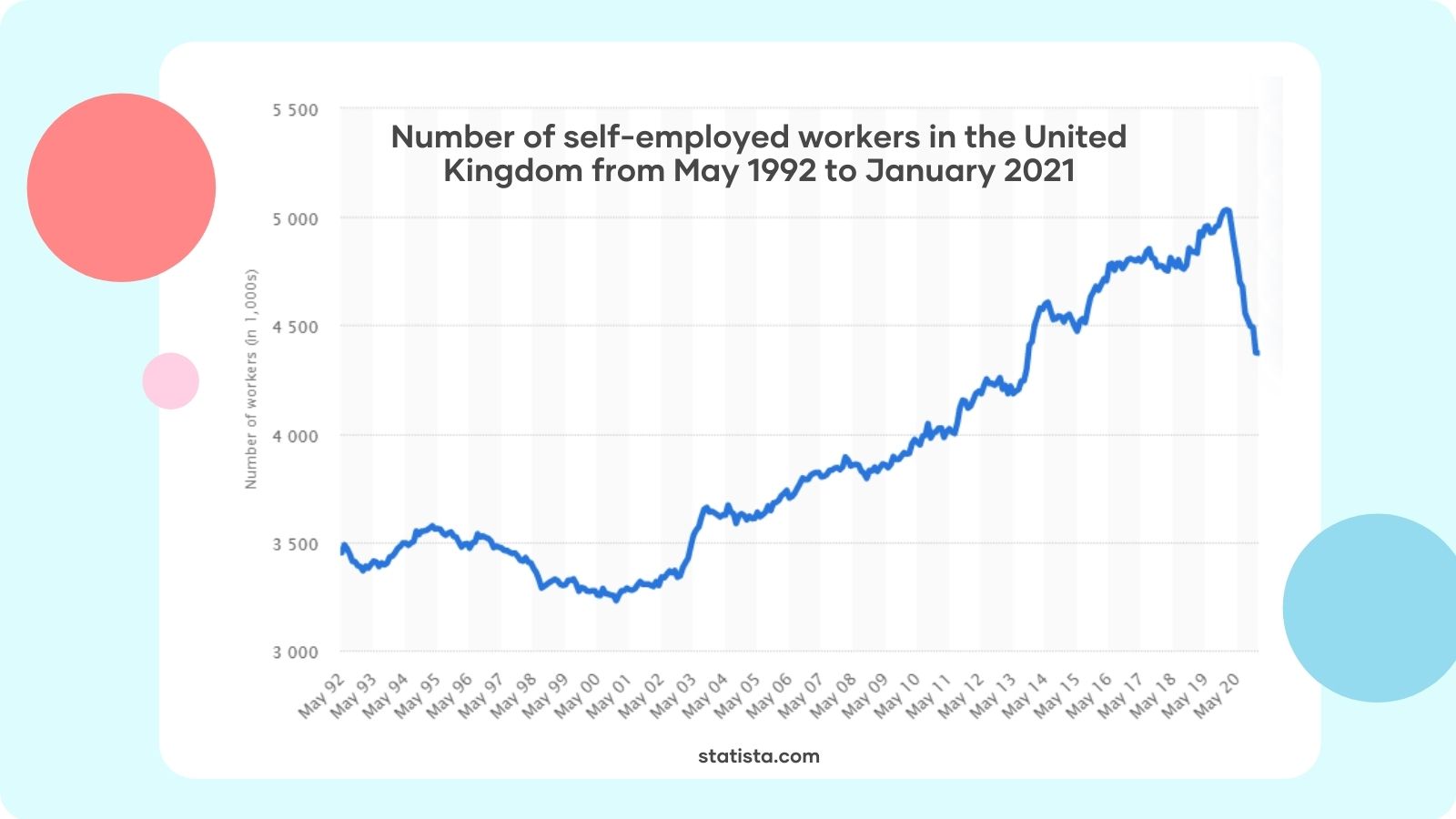There were approximately 4.37 million self-employed people in the United Kingdom when Statista measured in January 2021. But can they get a mortgage and how does that work?
Getting a mortgage when your self employed is definitely possible... it's just a bit more complex than your standard mortgage application, with a couple more boxes to tick. Without a contract of employment or regular payslips, it can be tough to convince lenders that you're a safe bet. But don't despair – with a decent deposit, plenty of planning, and some financial discipline, it is possible to get a mortgage.
We're here to guide you on how to get a mortgage when you're self-employed.
Can you get a mortgage when you're self-employed?
Yes, you can, but there are stricter mortgage lending requirements if you work for yourself that we'll go through in this blog. This is because lenders see you as riskier; because your income is expected to fluctuate. Proving your income is sometimes more difficult if you're self-employed, but you should be able to do this if you can get the right paperwork together.
There were approximately 4.37 million self-employed people in the United Kingdom when Statista measured in January 2021. But how do they get a mortgage?
Mortgage borrowing when you're self-employed
1. There's no such thing as a 'self-employed mortgage'
There's no such thing as a 'self-employed mortgage': you'll be applying for the same mortgage products as homebuyers who are employed by companies.
2. You will require at least two years of accounts
For self-employed applicants, mortgage lenders generally require at least two years of accounts signed off by a certified or chartered accountant. However, the more records you can provide, the better.
3. If you can, show consistent growth in profit over the years you provide
Lenders look at average profits over a period of time to assess your risk profile. If your income varies dramatically from year to year, you might need to provide further evidence of future income, such as new clients or contracts, or be able to prove that you have a significant amount of savings.
How to boost your mortgage borrowing chances when you're self-employed
One in six (17%) self-employed mortgage applicants have said they were declined for a mortgage because they run their own business, according to mortgage broker Haysto. So how can you boost your chances of approval?
1. Use an accountant
Some lenders will not consider applications from self-employed people who do not have their accounts signed off by a qualified or chartered accountant.
2. Complete an SA302 form for every year of tax
SA302 forms provide annual tax calculations, and most lenders will ask for evidence for each year you declare for your mortgage, mostly 2 or 3 years.. so 2 or 3 SA302 forms.
If you've sent your self-assessment tax returns online, you can print off your SA302 calculations from your HMRC account. If you filed your accounts by post, you'll need to contact HMRC and allow up to two weeks for your forms to arrive.
3. Try and save a bigger deposit
As with any house purchase, the bigger the deposit you've got, the easier it is to secure a mortgage at a good rate. Most lenders require a deposit of at least 10-20%, and if you don't have a long history of accounts, you could need an even bigger deposit to convince a lender that you're a safe bet.
4. Give your finances a clean
According to Which before you begin the mortgage application process when you're self-employed you should:
'First, boost your credit rating by paying off any debts as soon as they're due, closing dormant accounts, ensuring there are no incorrect entries on your credit report, and getting on the electoral roll. You should also be careful about your spending habits in the year before you apply, as all regular outgoings will be taken into consideration by your lender.'
5. Speak to a professional Mortgage Broker or Advisor
If you apply for a mortgage and the lender rejects you, it will be recorded on your credit file. This can damage your credit score and, in turn, make it less likely that you get accepted by the next lender you apply to.
A whole-of-market will be able to look at your personal situation and advise on the best lenders to apply to based on your credit history.
The three categories for a self-employed mortgage applicant
Lenders will view you as self-employed if you own more than 20% to 25% of a business, from which you earn your main income.
1. Are you a Sole Trader?
If you're a one-man-band, you (or your accountant) will declare your income using self-assessment and have your tax calculated by HMRC. Once you've done this, you can ask for an SA302 form, which outlines your total income and tax paid. Lenders will then base their mortgage calculations on this information.
3. Are you a Limited Company?
If you form a limited company, you'll be keeping your business accounts separate from your personal ones. As a director, you'll usually pay yourself a salary and dividend payments, both of which lenders will take into account when you apply for a mortgage.
3. Are you a Partnership?
If you're in business with someone else, mortgage lenders will look at your individual share of the profits.


